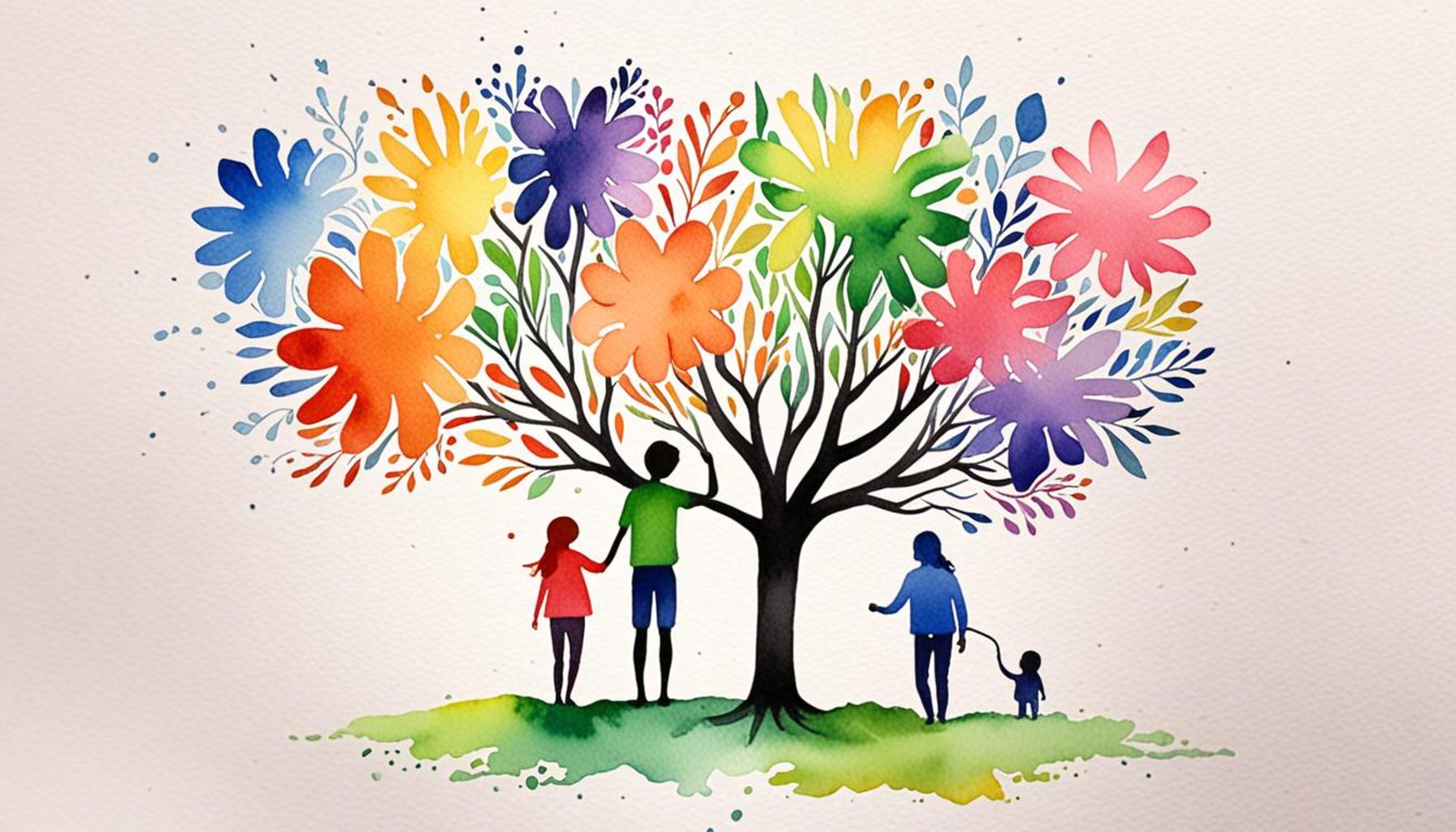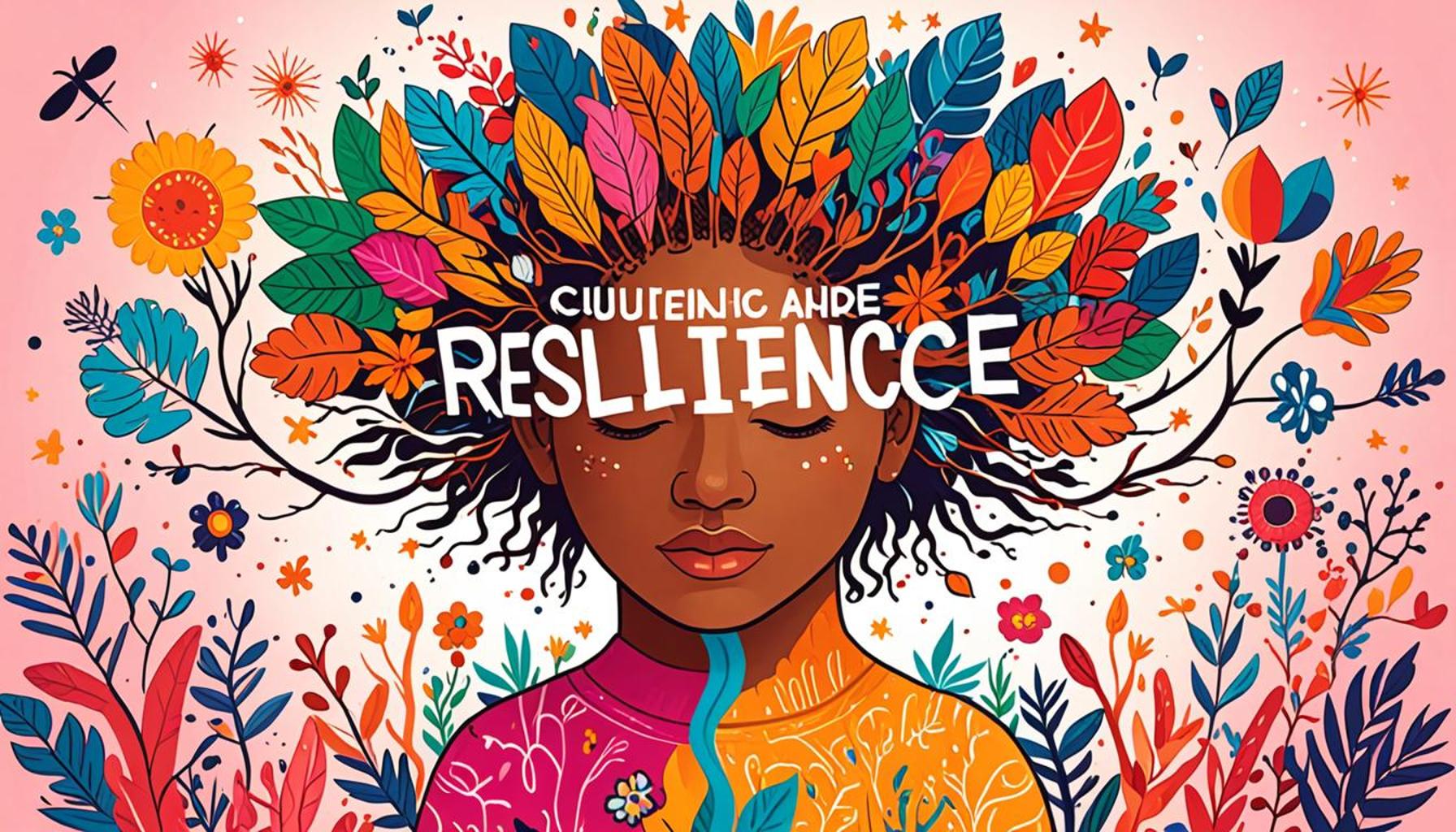Developing Resilience in Families: Strategies to Strengthen Bonds and Promote a Collective Growth Mindset

Building Resilience in Families
Families are the backbone of society, especially in Nigeria, where communal ties run deep. As challenges arise—from economic pressures to social changes—developing resilience becomes crucial. Resilience enables families to navigate difficult times while maintaining strong bonds and a positive outlook.
Consider these factors that contribute to resilience:
- Open Communication: Encouraging families to share thoughts and feelings fosters understanding. Effective communication helps to resolve conflicts and address problems before they escalate. In Nigeria, where cultural norms often prioritize respect and hierarchy, teaching children to express their emotions can break down barriers and build stronger familial relationships.
- Support Systems: Leveraging relationships with extended family and friends provides comfort during tough times. In many Nigerian communities, the saying “it takes a village to raise a child” exemplifies this support system. Frequent family gatherings, communal events, and ritual celebrations not only reinforce bonds but also create a network of support that families can rely on during crises.
- Shared Goals: Focusing on collective aspirations cultivates a sense of purpose and teamwork. For instance, building a family business or participating in community service projects can unify family members. This shared vision is particularly relevant in Nigeria, where many families band together to improve their standard of living through entrepreneurship and education initiatives.
Moreover, embracing a collective growth mindset can transform family dynamics. This concept involves viewing challenges as opportunities for growth rather than setbacks. Families can learn from their experiences together, enhancing their resilience. For example, navigating financial hardships could lead to conversations about budgeting and resource management, thereby instilling essential life skills in younger family members.
In the face of adversity, resilient families not only survive but thrive. They adapt their approaches and find constructive ways to support one another, ultimately emerging stronger. Whether it’s a sudden loss of income due to economic downturns or societal changes like urban migration, resilient families exhibit flexibility. They might pursue alternative sources of income or engage in community networks for resources and support.
As we explore effective strategies for developing resilience, we will uncover valuable insights that can be applied in Nigerian contexts and beyond. Understanding the importance of resilience can encourage families to invest in their connections, leading to a healthier emotional environment for all members. With the right tools and mindset, families will not only survive the storms of life but also emerge with fortified relationships and a robust support system.

CHECK OUT: Click here to explore more
Core Strategies for Family Resilience
In today’s fast-paced and often unpredictable world, families must cultivate resilience to offset various stresses and challenges. For Nigerian families, integrating strategies that foster a strong familial foundation is essential in navigating both daily hurdles and significant life events. Implementing these strategies can greatly enhance emotional well-being and cohesive connections among family members.
Promoting Emotional Intelligence
One of the precursors to building resilience is fostering emotional intelligence within the family unit. Families can design activities aimed at recognizing and discussing emotions. For instance, weekly family meetings where each member shares their experiences, both good and bad, can help children and adults alike articulate their feelings. Engaging in role-playing scenarios could also equip children with skills to empathize with others, enhancing their social interactions outside the family. Emotional intelligence not only strengthens personal relationships but also prepares family members to respond effectively to challenges they may encounter.
Cultivating a Culture of Collaboration
Another effective strategy for enhancing resilience is cultivating a culture of collaboration. Encouraging collaboration begins with engaging in group activities, such as cooking or home improvement projects. These activities allow family members to pool their strengths while also teaching lessons in cooperation and compromise. In a Nigerian context, families could consider participating in local community gardens or craft projects, further integrating the notion of collaboration into their daily lives.
Establishing Routines and Traditions
Establishing consistent family routines and traditions can also bolster resilience. Predictable routines provide a sense of security, particularly for children, and help in creating family cohesion. Simple traditions like Friday night movie sessions or Sunday communal meals serve as anchor points in family life, reinforcing the importance of shared experiences. These gatherings create opportunities for dialogue, allowing family members to share their week, voice concerns, and celebrate achievements. Such practices can be instrumental in fostering a familial environment that supports both individual and collective growth.
Building Problem-Solving Skills
Additionally, equipping family members with problem-solving skills is crucial in developing resilience. Families should encourage discussions on tackling challenges, such as dealing with financial constraints or health issues. Engaging in brainstorming sessions, where everyone offers possible solutions to a hypothetical or real-life problem, can enhance critical thinking and encourage innovative solutions. This proactive approach not only addresses immediate concerns but also empowers family members to view problems as opportunities for growth.
By promoting emotional intelligence, fostering collaboration, establishing routines, and building problem-solving skills, Nigerian families can create a nurturing environment that is conducive to resilience. These strategies lay the groundwork for a collective growth mindset, allowing families to adapt and thrive in the face of adversity. As families integrate these practices into their daily lives, they not only strengthen their bonds but also become better equipped to handle whatever life’s challenges may bring.
| Advantage | Description |
|---|---|
| Enhanced Communication | Regularly discussing challenges promotes open dialogue among family members, fostering a supportive environment. |
| Emphasis on Teamwork | Collaborative problem-solving emphasizes collective effort to overcome obstacles, strengthening family unity. |
| Emotional Intelligence Development | Practicing empathy and active listening nurtures emotional resilience, enabling members to better manage their feelings. |
| Building Trust | Consistent support and understanding build trust, essential for navigating life’s challenges as a family. |
Families that actively engage in developing resilience not only fortify their bonds but also cultivate a mindset geared toward growth and adaptation. These strategies encompass varied techniques that guide families toward a harmonious existence, combining emotional and practical skills. By fostering an atmosphere where challenges are met together, each member learns valuable lessons about perseverance and mutual support. This collective approach transforms obstacles into shared experiences, ultimately fortifying the familial structure to better handle future adversities. Families that prioritize resilience will likely find themselves equipped with tools to promote harmony while using strategies that instill a robust growth mindset, thereby facilitating ongoing personal and collective development.
ADDITIONAL INSIGHTS: Expand your understanding here
Fostering Positive Communication and Conflict Resolution
Effective communication plays a pivotal role in fortifying resilience within families. Promoting positive communication involves not only expressing thoughts and feelings openly but also actively listening to each member without judgment. Creating an environment where everyone feels safe to share their opinions fosters trust and respect. Families can set aside regular times to engage in open dialogues, where they can discuss both challenges and triumphs. Implementing tools such as “I” statements can help family members articulate their feelings without sounding accusatory, thus reducing potential conflict and enhancing understanding.
Encouraging Individual Strengths
Recognizing and capitalizing on each family member’s unique strengths is a cornerstone of resilience. Families can encourage individual growth by assigning tasks that cater to personal abilities. For instance, the artistically inclined member could take charge of decorating family spaces, while the tech-savvy individual could manage family budgets or organize online family activities. By acknowledging these strengths, families not only promote self-esteem but also foster a sense of belonging and competence, contributing to a collective growth mindset.
Promoting a Spirit of Gratitude
In times of adversity, cultivating a spirit of gratitude can significantly enhance family resilience. Families can practice this by initiating a gratitude journal, where each member notes things they are thankful for weekly. This practice shifts focus from challenges to the positive aspects of life, helping family members build a more optimistic outlook. During family gatherings, taking a moment to express appreciation for one another can further strengthen bonds. Such habits reinforce the idea that despite difficulties, there is always something good to celebrate, thereby instilling hope in uncertain times.
Building External Support Systems
Moreover, fostering resilience does not solely occur within family walls; it extends to the broader community. Families should actively build external support systems, whether through friendships, extended family ties, or community groups. Engaging with neighbors or participating in community events can provide additional resources during tough times. For instance, Nigerian families may connect through local cooperative societies, which can offer support ranging from childcare to resource sharing. These connections enhance the family’s sense of belonging and provide platforms for sharing experiences, leading to collective resilience.
Emphasizing Adaptability and Flexibility
Finally, in a rapidly changing world, promoting adaptability and flexibility is key in developing resilience. Families should strive to remain open to change and find ways to pivot when faced with unexpected situations. For example, when plans go awry, such as travel disruptions or sudden financial constraints, families can work together to brainstorm alternative options, like local family outings or budget-friendly activities. By embedding a culture of adaptability, families not only enhance their resilience but also model a valuable skill set that children can carry into their futures.
Through fostering positive communication, encouraging individual strengths, promoting gratitude, building external support systems, and emphasizing adaptability, Nigerian families can create a robust framework for resilience. These strategies encourage a collective growth mindset, ultimately allowing families to thrive amidst life’s various challenges.
YOU MAY ALSO LIKE: Read read another article
Conclusion
In summation, developing resilience in families is a multifaceted approach that encompasses various strategies aimed at strengthening family bonds and fostering a collective growth mindset. Effective communication, respect for individual strengths, a spirit of gratitude, strong external support systems, and adaptability are essential components that empower families to navigate life’s challenges together.
As families in Nigeria harness these strategies, they not only enhance their internal dynamics but also equip themselves to face adversities with a sense of unity and purpose. Engaging in regular dialogues and practicing appreciation can greatly enhance emotional connection, while recognizing each member’s unique abilities fosters self-esteem and collaboration. Additionally, creating a strong network with the community not only broadens support but also enriches family experiences.
The ability to adapt and remain flexible is particularly critical in today’s ever-changing environment. By modeling resilience and innovation in the face of setbacks, families instill valuable life skills in younger generations, preparing them for future challenges. This nurturing environment cultivates a sense of hope and reinforces the belief that obstacles can be overcome collectively.
Ultimately, the journey toward resilience is continuous. Families are encouraged to periodically reevaluate and adjust their strategies. By remaining committed to growth and fostering strong connections, families can thrive together, creating a legacy of resilience that can last for generations. Those interested in delving deeper into these principles and their application are encouraged to explore community resources, workshops, and literature focused on family development, ensuring a richer understanding and practice of resilience in everyday life.


